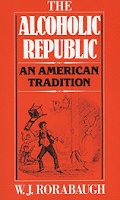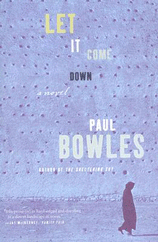
Brian Dillon was born in Dublin in 1969. His first book, the memoir
In the Dark Room, won the 2006 Irish Book Award for nonfiction. The U.K. editor of
Cabinet, a quarterly of art and culture based in New York, Dillon is a research fellow at the University of Kent. His new book,
The Hypochondriacs: Nine Tormented Lives, is due out in February.
At the
Wall Street Journal, he named a five best list of books about hypochondria. One title on the list:
The Magic Mountain
by Thomas Mann
Knopf, 1927
Tuberculosis was the modish ailment of the late 19th and early 20th centuries. Its wide-eyed, pallid victims were romanticized as exquisite, attractive and, above all, interesting. Thomas Mann's "The Magic Mountain," first published in Germany in 1924, is a penetrating and ironic analysis of the TB craze and more broadly of the intellectual and class pretensions involved in hypochondriacal wish-fulfillment. The novel's hero, Hans Castorp, travels to a Swiss sanatorium to visit his tubercular cousin Joachim. Finding himself "in possession of a first-class cold," Hans is swiftly drawn into the culture of picturesque debility that prevails there. Examinations are scheduled, Hans is given precise instructions for taking his temperature and he eventually is told that he, too, has TB. Good health now seems an aberration of youth and sickness an aristocratic ritual, "a state almost amounting to beatification."
Thomas Mann's "The Magic Mountain," first published in Germany in 1924, is a penetrating and ironic analysis of the TB craze and more broadly of the intellectual and class pretensions involved in hypochondriacal wish-fulfillment. The novel's hero, Hans Castorp, travels to a Swiss sanatorium to visit his tubercular cousin Joachim. Finding himself "in possession of a first-class cold," Hans is swiftly drawn into the culture of picturesque debility that prevails there. Examinations are scheduled, Hans is given precise instructions for taking his temperature and he eventually is told that he, too, has TB. Good health now seems an aberration of youth and sickness an aristocratic ritual, "a state almost amounting to beatification."
Read about
the other books on the list.
According to Philip Roth, there are
not many novels that take illness as their main subject.
--Marshal Zeringue
 She told The Week magazine about her six best books. One title on the list:
She told The Week magazine about her six best books. One title on the list:









































